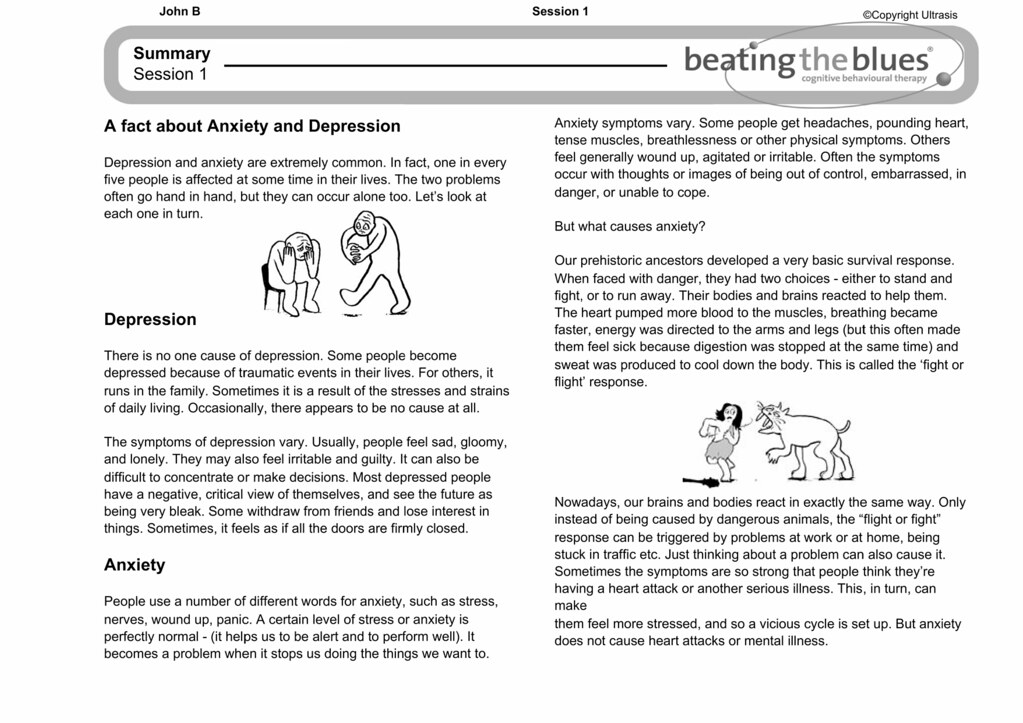As the world becomes increasingly digital, online counselling has become famous for those seeking therapy. However, with the rise of technology comes new challenges and ethical considerations for therapists.
The British Association for Counselling and Psychotherapy (BACP) has released new online counselling guidelines set to take effect in 2023. we will explore these guidelines and how therapists can master them to provide effective and ethical online counselling services. Whether you’re a seasoned therapist or just starting in the field, this post is a must-read for anyone looking to stay ahead of the curve in online counselling.

Understanding the Importance of the BACP’s 2023 Guidelines for Online Counselling
BACP online counselling guidelines 2023 are crucial for practitioners to understand and follow as they provide a framework for delivering safe and effective online therapy. The policies were first introduced in 2015, but the new updates set to launch in January 2023 address current issues such as cybersecurity threats and the use of technology in practice. Practitioners who fail to comply with these regulations risk compromising their clients’ safety, confidentiality, and trust.
Therefore, staying up-to-date with the latest changes and implementing them into your work processes is essential. These guidelines help you meet legal requirements and ensure that you provide ethical care that meets industry standards, ultimately improving client outcomes substantially.

Fundamental Changes and Updates in the BACP’s 2023 Guidelines for Online Counselling
The BACP’s 2023 Guidelines for Online Counselling aim to provide updated and comprehensive guidance for practitioners who offer online counselling services. One of the critical changes in the guidelines is the inclusion of video counselling as a mode of delivery. The guidelines also emphasize the importance of informed consent, risk assessment, and contingency planning in online counselling.
Practitioners are encouraged to assess their competence and skills in online counselling, including familiarity with technology and digital communication tools. Another important update is the recommendation for practitioners to clearly understand their responsibilities regarding data protection and confidentiality when using third-party platforms for online counselling sessions.
The guidelines also guide managing boundaries, handling emergencies, and addressing ethical issues that may arise in online counselling. Overall, the BACP’s 2023 Guidelines for Online Counselling provide a valuable resource for practitioners seeking to offer safe, effective, and ethical online counselling services.
Essential Skills and Competencies for Online Counselling Practitioners
Online counselling requires specific competencies and skills that differ from in-person counselling. Practitioners must thoroughly understand the technology they will use to communicate with clients, including video conferencing apps, messaging platforms, or emails. They should also be aware of their limitations and how to manage technical issues that may arise during sessions.
Active listening skills are crucial in online counselling as it is more challenging to accurately interpret non-verbal cues such as body language or tone of voice. Practitioners must also be able to establish clear boundaries and expectations for communication, such as response times, emergency procedures, cancellation policies, and billing processes.
Cultural sensitivity is another essential skill needed to provide effective online counselling services. Clinicians must understand their clients’ cultural backgrounds and beliefs while remaining culturally responsive.
It’s essential for practitioners engaging in Online Counselling work to continually update themselves on industry developments to provide quality care by staying current with best practices within digital counselling delivery methods.

Building Trust and Rapport with Clients in Online Counselling Sessions
Establishing a Secure and Confidential Environment for Online Counselling
Establishing a secure and confidential environment is crucial for building trust and rapport with clients in online counselling sessions. Ensure your software, devices, and internet connection are up-to-date and secure. Make it clear to clients that you take their privacy seriously and have measures in place to protect their personal information.
Before beginning a session, discuss confidentiality policies, including limits to confidentiality, such as mandatory reporting requirements or potential breaches of privacy due to technical issues. Remind clients to use a private location where they won’t be overheard during the session. By creating a safe and confidential space for online counselling, you can build trust with your client base while promoting successful outcomes in line with the BACP’s 2023 guidelines for online.
Navigating Communication Barriers in Virtual Therapy Sessions
Building trust and rapport with clients is crucial in any counselling session, but online counselling can be particularly challenging. The lack of physical presence and nonverbal cues can create barriers to the therapeutic process.
Active listening and empathy are essential skills for overcoming these barriers. Practitioners should also encourage clients to express themselves freely and provide feedback to ensure that they feel heard and understood. Establishing clear boundaries and expectations from the outset, including communication and response time guidelines, is essential. By creating a safe and supportive virtual environment, practitioners can build trust and rapport with their clients, leading to more effective therapy outcomes.
Creating a Positive Therapeutic Alliance in the Digital Space
Establishing a solid therapeutic alliance is crucial for successful online counselling. Active listening and empathy are essential to build trust and rapport with clients. It is essential to create a safe and non-judgmental space where clients feel comfortable sharing their thoughts and feelings. Practitioners should also be mindful of their tone of voice, body language, and facial expressions during video sessions.
Encouraging clients to provide feedback on their experiences can also help strengthen the therapeutic alliance. Creating a positive therapeutic alliance in the digital space requires practitioners to be attentive, empathetic, and responsive to their clients’ needs.
Adapting Traditional Counselling Techniques to the Online Setting
It’s essential to adapt traditional counselling techniques to the digital setting to build trust and rapport with clients in online counselling. Nonverbal communication plays a crucial role in building trust, so use video conferencing software that allows you to see each other’s faces. Additionally, active listening is critical: paraphrase what your client says and ask clarifying questions when needed.
Finally, be aware of potential technological barriers that could impede the therapeutic process and have backup plans ready in case of any technical difficulties. By adapting these traditional techniques for the online setting, you can help your clients feel more comfortable and connected during their sessions.
Ensuring Confidentiality and Data Protection in Online Counselling
Understanding the Importance of Confidentiality in Online Counselling
Confidentiality and data protection are crucial aspects of online counselling that must be prioritised. Clients must feel safe and secure when sharing their personal information and concerns with their counsellors. Ensuring confidentiality builds trust between the client and the counsellor and complies with the BACP online counselling guidelines 2023.
Online counsellors must take necessary measures to protect client data from unauthorized access, disclosure, or theft. Breaching confidentiality can have severe consequences for the client and the counsellor, so following best practices and ethical standards in online counselling is essential.
Implementing Robust Data Protection Measures in Online Therapy
It is crucial to ensure the confidentiality and data protection of client information when providing online counselling. Implementing robust data protection measures can help minimise the risk of breaches and maintain trust with clients.
Practitioners should use secure online platforms that comply with industry standards such as GDPR or HIPAA. Encryption methods, two-factor authentication, and firewalls can also enhance security.
It’s important to clarify early on how data will be stored, accessed or destroyed in a Privacy Policy agreement. This provides transparency about your practices while safeguarding against potential legal disputes.
In summary, prioritising confidentiality and protecting client data is not only essential for ethical practice but also required by law; practitioners need to take every possible step.
Safeguarding Client Information: Best Practices for Therapists Offering Online Counselling
It is crucial for therapists offering online counselling services to prioritize data protection and confidentiality. They should use secure technology and ensure clients’ information is kept confidential through secure passwords, encrypted emails, and safe storage of electronic files. Therapists must also establish clear agreements on how client data will be stored, accessed or shared before commencing online counselling sessions.
Additionally, therapists can maintain confidentiality by providing clients with guidelines when communicating electronically about their therapy sessions, such as not sharing personal devices with others or using secure networks while accessing the session. By taking these steps, therapists can uphold their ethical obligation to safeguard client information in all aspects of practice, including online counselling.
Navigating Legal and Ethical Obligations in Maintaining Confidentiality during Virtual Sessions
Confidentiality is a top priority in online counselling, and practitioners must ensure that client data is always protected. With the rise of remote counselling, navigating legal and ethical obligations to maintain confidentiality during virtual sessions is essential. Online counsellors should use secure platforms that comply with data protection laws while ensuring they have clients’ consent before sharing personal information.
Encryption and other security measures are crucial for keeping sensitive client information safe in transit or storage. It’s also important to set boundaries around communication channels and keep comprehensive records of interactions while maintaining confidentiality during online counselling sessions.
Ethical Considerations and Best Practices for Online Counselling
Online counselling presents unique ethical challenges that practitioners must be aware of to ensure they provide their clients with the best possible care. One of the most critical considerations is informed consent, which involves explaining the risks and benefits of online counselling to clients and obtaining their consent to participate in sessions. Practitioners must also ensure that they use secure platforms and take appropriate measures to protect client confidentiality and data privacy.
Another critical consideration is boundaries. Practitioners must establish clear boundaries with clients, including setting expectations around response times, session length, and communication outside of sessions. They must also be mindful of potential power imbalances in the online environment and take steps to mitigate these risks.
Finally, practitioners must be prepared to address any crises or emergencies during online counselling sessions. This includes having a plan in place for contacting emergency services or referring clients to appropriate resources if necessary.
By staying informed about ethical considerations and best practices for online counselling, practitioners can provide effective and responsible care for their clients while adhering to the BACP’s 2023 guidelines.

Implementing the BACP’s 2023 Guidelines: Tips and Strategies for Success
Incorporating the New Changes
Online counselling practitioners should take time to understand and incorporate the new changes outlined in BACP’s updated guidelines properly. This may require additional training, research, or consultation with colleagues or supervisors. It is essential to integrate these changes into practice effectively while ensuring client safety, confidentiality, and privacy.
Regular Review of Online Counselling Practices
Practitioners must regularly review their online counselling practices to maintain compliance with BACP guidelines. Regular assessments enable the identification of potential areas that could benefit from improvement or modification concerning data protection measures or ethical considerations.
Adopting strategies such as keeping clear boundaries around availability for virtual appointments, maintaining up-to-date technological infrastructure (including secure video conferencing software), staying informed about emerging cyber threats, and monitoring progress using goal-setting techniques can help validate practical implementation efforts by an online practitioner who seeks adherence to the updated guidelines provided by the British Association for Counselling & Psychotherapy (BACP).
The BACP’s 2023 guidelines for online counselling represent a critical development in therapy. Understanding these guidelines, fundamental changes and updates within them, and essential skills and competencies needed for practitioners are crucial to providing effective online counselling services.
Building trust with clients through rapport-building techniques and ensuring confidentiality and data protection are also important considerations. Adhering to ethical principles such as informed consent can help ensure successful practice while implementing the BACP’s 2023 Guidelines. With this knowledge, therapists can provide high-quality online counselling services that meet their clients’ needs safely and effectively.
